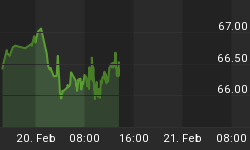In the vein of any good mystery (or conspiracy theory), here are some charts and stats to go with the Bear Stearns' conspiracy post that I made a few days ago - Hat tip to Chris Alleva for the heads up.
JP Morgan had a credit exposure/capital ratio of 419% as of 12/07. Click here to download the original chart:
![]() Comptroller_currency_report_exposure_capital_ratio 27/04/2008 32.28 Kb
Comptroller_currency_report_exposure_capital_ratio 27/04/2008 32.28 Kb

The average ratio is 83%, excluding JPM it is 49%. HSBC is the only bank with the level of exposure and they have had some of largest writedowns.
But there are more than a few crackpots making this assertion. Professor Solomon from NYU is one of those making the charge.
Specifically, I believe that JP Morgan acquired Bear because they stood to lose the most from a Bear Stearns bankruptcy. For example, as Barry Ritholtz of the Big Picture points out (see here), JP Morgan has the greatest derivative exposure of any of the I-Banks. Now, I do not know how much of that exposure was to Bear Stearns as the counterparty, but I bet it was a fair amount (in fact, see Jesse's Cafe Americain for information on Bear's credit derivative exposure).
If Bear were the counterparty (insurer) to JP Morgan on much of its mortgage-backed security portfolio, it then becomes transparent why JP Morgan had to step in. They would have had to step in to avoid a Bear bankruptcy so that they would not be forced to take toxic assets back onto their own balance sheet and avoid massive write-downs. Were JP's exposure to Bear large enough, then JP Morgan itself could have been left significantly impaired.
This might also explain the Fed's interest in Bear. For example, if it were only Bear at risk and their exposure was spread relatively evenly across counterparties such that many of the big, primary banks were not at risk as a result, the Fed would have had no interest in this event. Instead, it would have just let Bear fail. But the Fed could not let Bear bring down JP Morgan with it. So it stepped in to orchestrate an orderly wind-down of Bear while facilitating its acquisition by JP Morgan.
But this still doesn't explain why JP Morgan ended up with a relatively "cheap" price for Bear. Here is the second part of my theory. Namely, that Bear was into JP Morgan so deep (on the bad side of so many counterparty trades with them), that the Fed effectively negotiated a price that would have made Bear more or less whole on its obligations to JP Morgan. This too could explain why many other suitors dropped out so early in the process - because the Fed was not prepared to offer the same deal to those other "interested" buyers.
















